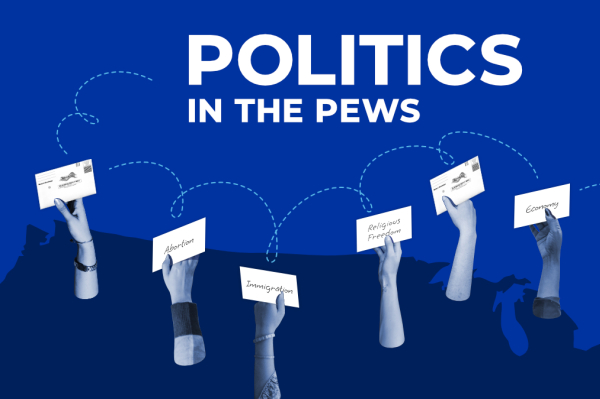More Pew Findings
In this business and with pleasure one cannot not comment on the Pew Forum on Religion and Public Life surveys. They are the most ambitious and expansive polls and draw the most public attention. Chancy as all opinion polls are, these Pew products provide at least some broad-brush understandings of the subject. In the nature of things, press releases lift out and slightly exaggerate evidences of trends in the face of so much continuity in American religion. For example, last winter we were told that there is much "switching" from one church community to another, which is true—but when historians checked in we also learned that there has long, perhaps always, been much of such.
This time the "key finding" is that Americans are very religious, but they are seldom dogmatic and often quite tolerant, improvising adaptations in their own belief systems right under the noses of church authorities. Let me point to one finding that does represent change from the way things were fifty years ago, when Protestant-Catholic gaps and conflicts still made news and were worrisome to many. (Then along came President John and Pope John and the Council and ecumenism and grass-roots changes.) My thesis or hypothesis is reconfirmed: Catholic growth (thanks to mainly Mexican immigration) and decline in clergy numbers aside, Catholicism and Mainline Protestantism are pretty much in the same boat sociologically—and increasingly, theologically.
The Pew people graph sixteen responses by the two communities to opinion questions. At most four percentage points separate Catholic numbers from Mainline Protestants on all but four issues. The only wide separation is on legal abortion, with only thirty-two percent of the M.P.s thinking it should almost always be illegal and, I am tempted to repeat, "only" forty-five percent of Catholics thinking the same. Minorities in both think that "homosexuality is a way of life that should be discouraged by society" but—hold on!—here thirty-four percent of mainline Protestants say so, and only thirty percent of Catholics. A waning issue?
We learn that far below one hundred percent agree with long-cherished and nurtured church teachings when we find that eighty-five percent of Mainliners and seventy-nine percent of Catholics agree that "many religions can lead to eternal life" and eighty-two percent of M.P.s and seventy-seven percent of Catholics agree that "there is more than one way to interpret the teachings of my religion." The news releases say that this proves that multi-religious America is "non-dogmatic" or, in terms of critics, that the adherents are wishy-washy and that they water down their faiths. (Evangelical figures suggest more firmness—fifty-seven and fifty-three percent—on these two indicators. Aren't they low? Leaders are impressed or depressed by this sagging among evangelical members.)
Yes, the half-empty glass approach finds evidence of superficiality in figures like these. Yet, in the half-full view, so many citizens do care about their teachings' way of leading to eternal life that they must be doing some improvising. They don't stop believing, but they do stop persecuting or degrading or snubbing. In the depth of the beliefs of most of the religions the main and final theme is "shalom" or "reconciliation" or "peace" or other positives. The problems have come in when their adherents have obscured such messages by turning exclusive and absolutist, taking on the presumed business of the loving and judging God to whom they witness, by putting their main energies into ruling others out. They are sending dogmatists, exegetes, rule-book- and score-book-keepers back to the books to come up with reinterpretations that encourage faithfulness but discourage sending "others" to hell.





















